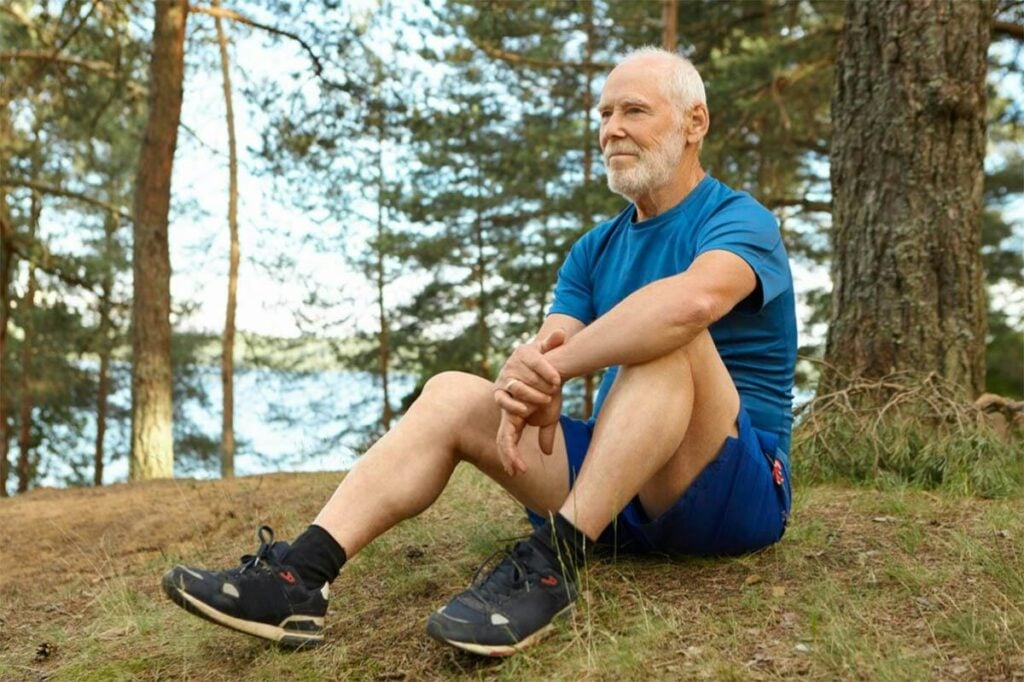Introduction
Many adventure enthusiasts love hiking. It offers breathtaking scenery and invigorating challenges. But, the post-hiking experience is not always as pleasant when it comes to the discomfort of knee pain.
Knees hurt after hiking is a common concern that many outdoor enthusiasts face. This comprehensive guide will delve into the various factors contributing to knee pain after a hike. We’ll also offer practical tips on prevention and treatment.
Learn about the potential benefits of physical therapy in Colorado Springs as a treatment for knee pain. Today, take a step toward more active and pain-free hiking.
Causes of Knee Pain After Hiking
Overuse
Overuse is a common reason why knees hurt after hiking adventure. The repetitive motion of climbing up and down trails, coupled with the sustained pressure on the knee joints. This can lead to wear and tear, resulting in chronic pain.
Inflammation
Inflammation is the body’s natural response to stress or injury. It can be a contributing factor. The prolonged stress on the knees during a hike may cause tissues to become inflamed, leading to pain and swelling.
Injury
Accidents on the trail can happen to even the most experienced hikers. A sudden twist, a misplaced step, or an unfortunate fall can cause acute knee injuries. They are making the adventure from the mountain less enjoyable.
Sprains and Strains
- A sudden twist or an uneven step can result in sprains or strains to the ligaments and tendons around the knee. These injuries can cause severe knee pain and limit mobility.
Meniscal Tears
- The meniscus is a cartilage in the knee. This can tear during sudden movements or impacts. This injury is often accompanied by sharp pain and swelling.
Patellar Tendonitis/Patellar Tendinitis
- Overuse of the knee joint can lead to inflammation of the patellar tendon. It is causing severe pain below the kneecap. This is a common issue for hikers covering long distances.
Fractures
- In extreme cases, a fall or collision can result in bone fractures around the knee joint. Fractures require immediate medical attention and can considerably impact the hiking experience.
Arthritis
For individuals with pre-existing conditions like arthritis, hiking can worsen knee pain. The physical exertion and stress on the joints may trigger inflammation. Hiking is a challenging experience for those with arthritis.
General Tips to Prevent and Treat Knee Pain After Hiking

Warm Up and Stretch
Before hitting the trail, taking a few minutes to warm up is important. Engage in light cardio exercises. Perform dynamic stretches to prepare your leg muscles and joints for the upcoming physical activity. Leg swings, knee-to-chest stretches, and quad stretches can help improve flexibility. They can also reduce the strain on your knees.
Choose Appropriate Footwear
Investing in high-quality hiking boots with proper ankle and arch support is essential. Ill-fitting or wrong shoes can lead to misalignment and contribute to knee discomfort during and after downhill hikes.
Avoid Risky Terrain
While the allure of challenging terrains is undeniable. Assessing your skill level and physical condition before hiking or downhill hiking is important. Steep terrain or uneven terrain increases the risk of injury.
Use Trekking Poles
Trekking poles are not just for show—they serve a vital purpose. They are distributing weight more evenly across your body. They provide additional support to reduce the impact on your knees.
Adjust Your Backpack
Maintain a well-balanced backpack by adjusting the straps to ensure a snug fit. An improperly fitted backpack can cause uneven stress on your back and knees. This can contribute to post-hiking discomfort.
Take Frequent Breaks and Stay Hydrated
Remember not to underestimate the power of breaks. Taking regular pauses during your hike allows your knees to rest. Staying hydrated is equally important for joint health.
Apply Ice or Cold Compress
Post-hike, if you notice any swelling or discomfort. Applying ice or a cold compress can help reduce inflammation and soothe the affected area.
Take Over-the-Counter Medications
Over-the-counter pain relievers like ibuprofen can manage mild to moderate pain from hiking. But, it’s crucial to follow recommended dosages.
Elevate Your Legs and Rest

Give your knees the care they deserve by elevating your legs during rest periods. This simple act can aid in reducing swelling and promoting a faster hiker’s knee recovery time. It can also help improve blood circulation and healing.
Consult a Doctor
Persistent knee pain demands medical advice. If the discomfort persists, consult a doctor. They can identify any underlying issues. They can recommend an appropriate course of action for treating knee pain. They can do this after you’ve been hiking.
Consult a Physical Therapist
A physical therapist can be a valuable ally in preventing and addressing knee pain after hiking. They can provide tailored exercises such as physical therapy strength training. This can improve joint stability and improve range of motion.
Conclusion
In conclusion, knee pain should not hinder enjoying the great outdoors. By adopting these preventive measures and incorporating thoughtful treatment strategies. Hikers can ensure a more comfortable and pain-free hiking experience.
Moreover, hikers must listen to their bodies and acknowledge when rest and recovery are paramount. Why does my knee hurt after hiking? It’s a question many hikers ask themselves, and the answer often lies in understanding one’s body. Ignoring persistent knee pain can lead to more severe issues down the trail. Regularly assess your fitness level and gradually increase the intensity of your hikes to allow your body to adapt.
FAQs
How do you stretch your knees after hiking?
Post-hike, gentle stretching is essential. Consider knee-to-chest stretches and leg swings. These can promote flexibility, and ease tension in the knee joints.
Is walking uphill hard on knees?
Walking uphill can increase knee pressure, especially if done without proper form. Using trekking hiking poles can assist in distributing the load and reducing strain on the knees.
Can walking 10,000 steps a day cause knee pain?
Walking is generally beneficial. But, exceeding 10,000 steps daily may contribute to knee pain. This can happen without proper footwear and on varied terrain. Ensure adequate rest. If pain persists, consult a medical professional.



